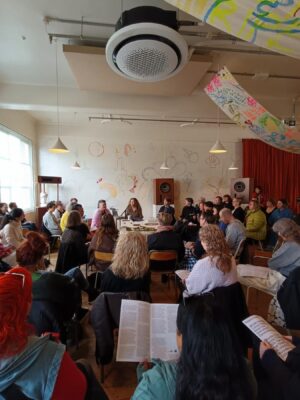Should Indigenous knowledge be ever fully accessible and shared, considering the historic implications of Western perspectives, value systems, and aesthetics?
Should private connotations infused into an artwork by its author be disclosed?
The balance between preserving certain elements as sacred and secret, while sharing others – gradually over time as trust is built – will be addressed, as well as the notions of private and public within body-related practices.
Social Club’s horizontal structure is known to create opportunities for overlap and crossover, fostering meaningful exchange among participants. This approach allows artists from diverse backgrounds to discuss these themes in relation to their personal work, facilitating a dialogue that promotes mutual understanding and learning in an intimate and profound manner.
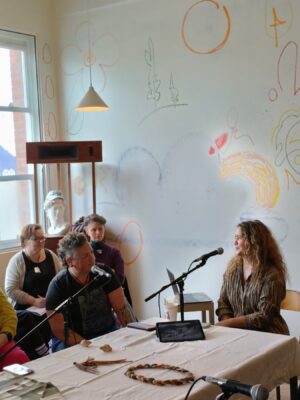
Speakers:
Saturday 14 September
Maree Clarke – a Yorta Yorta/Wamba Wamba/Mutti Mutti/Boonwurrung woman who grew up in Northwest Victoria, mainly in Mildura, on the banks of the Murray River. Maree has been a practicing artist living and working in Melbourne for the last three decades.
Maree is a pivotal figure in the reclamation of southeast Australian Aboriginal art practices, reviving elements of Aboriginal culture that were lost – or laying dormant – over the period of colonisation, as well as a leader in nurturing and promoting the diversity of contemporary southeast Aboriginal artists.
Maree’s continuing desire to affirm and reconnect with her cultural heritage has seen her revification of the traditional possum skin cloaks, together with the production of contemporary designs of kangaroo teeth necklaces, river reed necklaces and string headbands adorned with kangaroo teeth and echidna quills, in both traditional and contemporary materials such as glass and 3D printing.
Cara Johnson’s craft-based works interrogate tensions and narratives connected to ways land is treated, and used. Her practice is entwined with her rural location and is primarily concerned with traversing the complexities between people and plants. Cara completed a BFA (First Class Hons) at RMIT University in 2016. Recent solo exhibitions include Understory-RBGV, Overlay-Ararat Gallery TAMA and Semblance of Repair-Gallery Funaki. In 2022 and 2023 she was selected for Schmuck. Cara is represented by Gallery Funaki and her works are held in public and private collections including the National Gallery of Victoria.
Carly Tarkari Dodd – a Kaurna/Narungga and Ngarrindjeri artist and curator. She has learnt traditional weaving techniques and puts these to new use in creating contemporary works of art, often combining weaving with painting, and found objects to tell her story. Learning traditional weaving skills from a young age by Ngarrindjeri elder Aunty Ellen Trevorrow has inspired a more sculptural woven pieces in recent years. Carly is interested in regalia – the distinctive clothing and ornaments worn by royalty. She is committed to shedding light on the injustices experienced by Aboriginal people, choosing to award recognition to those ignored by society.
Gabbee Stolp’s work examines material, memory and place, evoking biological and metaphysical themes including grief, loss and human-induced extinction. Stolp creates gentle tools with which to reflect on time, change and the way our human lives are invariably connected to the deep-history and ecology of the places we live.
Stolp holds a Bachelor of Arts (Fine Arts) with First Class Honours, from RMIT University. She has exhibited widely throughout Australia and was the recipient of the ‘Bell Bay Aluminium People’s Choice Award’ for the Women’s Art Prize Tasmania, 2022. She is a founding member of State of Flux Workshop, in nipaluna/Hobart.
Sunday 15 September
Beatrice Brovia and Nicolas Cheng (Conversation Piece) – a collaborative practice initiated in 2011 by Beatrice Brovia and Nicolas Cheng, can be intended as a hands-on study on interconnectedness and interdependency. An ongoing reflection on ‘making-with’ through conversation, misunderstanding and friction, the practice considers the enfolding boundaries that connect materials, bodies, and technology in the complex timescapes of environmental change.
Jenna Lee – a Gulumerridjin (Larrakia), Wardaman and KarraJarri Saltwater woman with Japanese, Chinese, Filipino and Anglo-Australian (Irish and Scottish) ancestry.
Jenna’s practice centers on the exploration of language, materiality, and the transformation of inherited narratives. Deeply intrigued by what is lost in translation, Lee delves into the spaces between words—the felt but unseen—capturing the subtleties that surround language. Her work channels these overlooked nuances into immersive installations, works on paper, sculpture, and multimedia.
Lee is concerned with the scars of history and the transmutation of cultural legacies. Through meticulous deconstruction and reconstruction, she engages with materials that echo the past, revealing the hidden stories they carry. Her work seeks to uncover the unseen forces shaping our understanding of history and identity, drawing attention to what time has eroded and collective memory has suppressed.
Neke Moa (Ngāti Kahungunu, Ngāti Porou, Kai Tahu, Tūwharetoa). Neke Moa’s practice seeks to promote hauora by deepening connections between tāngata, tohunga, and atua. Using materials from taiao (environment), and drawing on customary and contemporary processes, she works to make mātauranga and pūrākau newly accessible. Her work explores our connections within the spaces of the seen and unseen, the place where wairua resides and creativity is sourced. “Through collaboration, building and maintaining relationships and a constant curiosity, I am able to sustain an art practice that continues to evolve”.
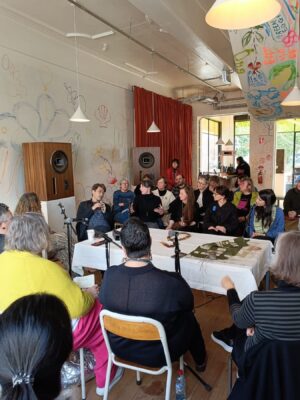
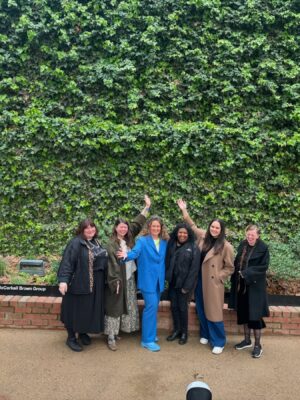
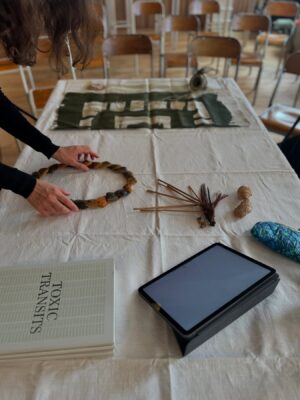
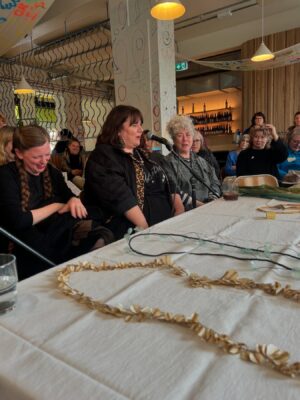
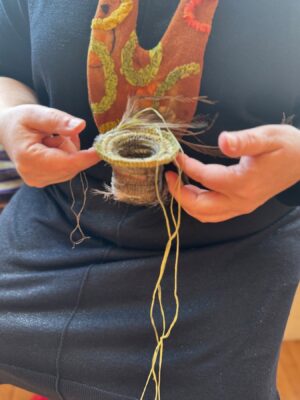
Current Obsession: Social Club International Conversation Series
Since the inaugural Munich Jewellery Week in 2016, dozens of these informal, intimate, yet dynamic conversations with both established and emerging voices from the international jewellery community have been organised around the world. Rooted in a level playing field approach, each session features a specific topic discussed by a group of experienced practitioners and an audience engaged in innovative, independent practices. Social Club is designed to foster listening, reflection, and the continuation of the conversation, together.
